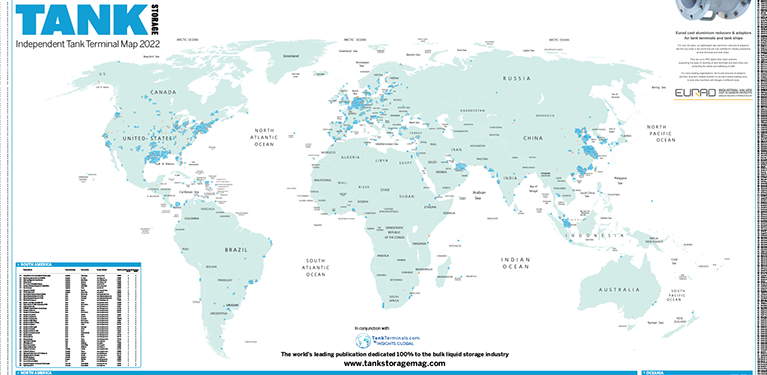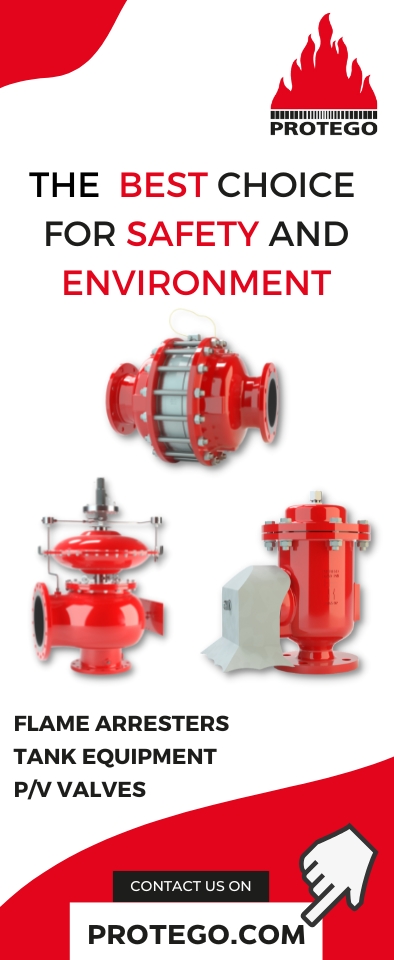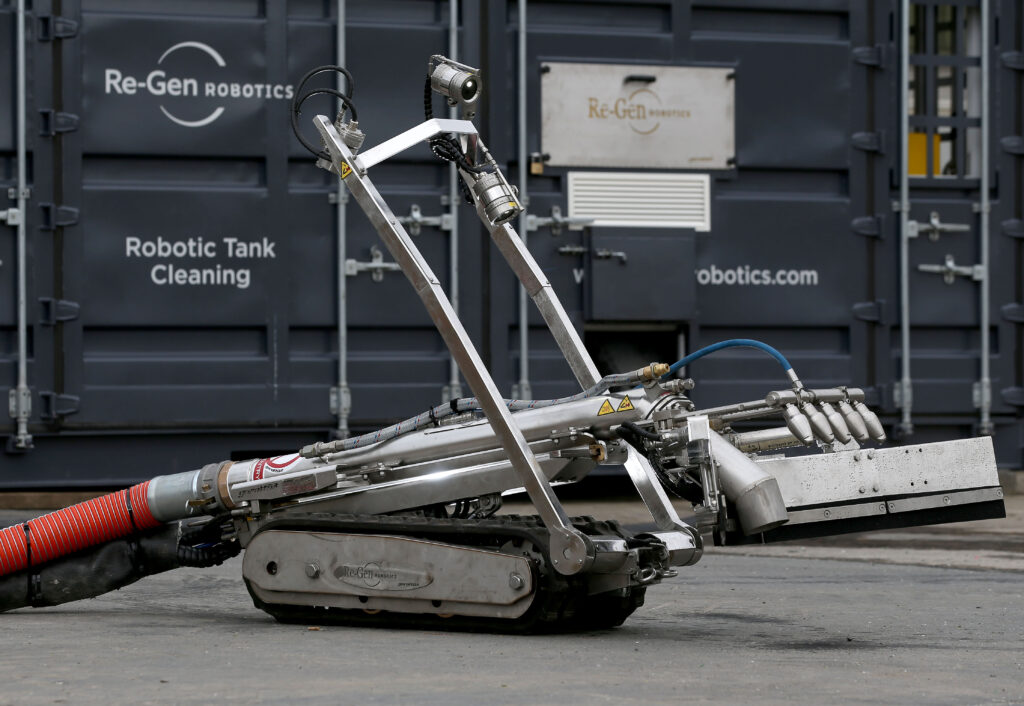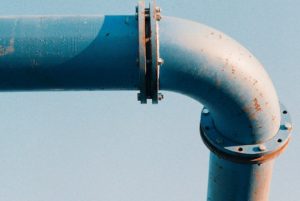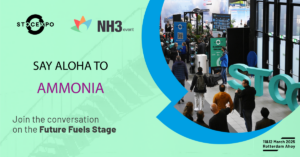Re-Gen Robotics’ no-man entry tank cleaning service provides huge logistics, cost and risk benefits for tank owners.
Tank cleaning is required at oil terminals as part of their ongoing maintenance programmes, generally every three to five years, or to undertake specialist tasks, such as changing product in the tank, decommissioning, assessing contamination, structural defects, and corrosion.
SLUDGE AND SEDIMENT
Sludge and sediment removal is a necessary operation that operators of oil storage facilities, refineries and processing plants manage as part of their facilities’ maintenance procedures.
Sludge and sediment can mount up in oil storage tanks in various ways. When the oil inside tanks is exposed to moisture, it can oxidise and form sludge. Whenever crude remains in storage for long periods of time, sludge can form.
Heavier products settle as sediment and sludge at the bottom of the tank. Raw or natural petroleum can contain contaminants such as organic matter, shells, aggregates, and water when it is extracted.
When settled inside tanks, sludge and sediment can affect the quality of the oil. The build up takes up precious space within the tank and can corrode the floor and inner walls. It can also cause uneven weight distribution, which can add stress to the integrity of the structure of the tank. Sludge and sediment can damage floating roofs and prevent them from providing a tight seal.
CHALLENGES OF TANK CLEANING
Because every tank is different, every tank clean presents its own unique difficulties and hazards.
Historically, manned entry was the only method to clean and recommission a tank. A huge number of safety checks had to be carried out before a team could enter the tank for cleaning including draining the tank, checking for flammable gases, steam connections and many more. Safe access and egress are required, so scaffolding and safety lines had to be erected, with an entry controller monitoring the workers cleaning inside the tank.
Before people entered a tank, they had to ensure proper ventilation was available and that the team was wearing full breathing apparatus connected to airlines. This is because the fuel/air mixtures present in a tank are more volatile and deadly, as oil and fuel begin to vaporise.
Workers would manually scrape the stubborn grit and sludge from the wall and floor of the tank before using a vacuum to suck the debris from the tank. Manual tank cleaning, therefore, created a tremendous logistics cost and risk for tank owners.
REMOVING HUMAN WORKERS
In 2019 when Re-Gen Robotics entered the market, the sector witnessed a new era of safe tank cleaning. In less than four years, Re-Gen Robotics has established its reputation as the ‘go-to’ company for no-man entry tank cleaning solutions. The company provides a fully contained system so no additional spend by the oil terminal operator is required for cranage or vacuum jetting.
Re-Gen Robotics’ state-of-the-art, remote controlled tank cleaning system is eradicating fatalities in the petrochemical sector, and hugely decreases all risk categories. Terminal and refinery operators can be assured that they have mitigated risks to employees and contractors as far as is reasonably practicable, when they engage a company that has invested over £7 million (€7.9 m) in the most advanced equipment to clean their tanks.
ROBOTIC CLEANING SYSTEM
The closed loop cleaning system is fully compliant with existing safety legislation and can reduce cleaning time by up to 60%, significantly decreasing downtime and loss of production whilst the assets are not operational.
Suitable for de-sludging, washing and cleaning large-scale oil and chemical tanks, the robot is designed to enter through a standard 600 mm manhole via an extending hydraulic ramp. The fully automated, highly mobile, remotely controlled, self-sufficient combination of tanker and specially designed 3,500 PSI jetting water nozzles play a vital part in the cleaning process. This robotic system has the power to clean the largest and dirtiest oil tanks with minimum trouble, delivering maximum results.
The auger system at the front of the robot breaks down heavy sludge without the necessity to use water, therefore generating less waste. Sludge is then extracted by the ADR certified jet/vac
tanker with 4,800 C/m3 per hour vacuum capacity.
The efficiency of the clean is crucial to planning schedules and means that the tanks can be brought back into operation sooner than manual cleaning. It also removes the need for additional tank capacity, permit delays and additional support teams. Using a fully contained waste removal and a 360° cleaning process, the waste material is transported off site using an ADR tanker and safely treated in an authorised, licensed facility. The entire tank cleaning operation is recorded on CCTV from the ATEX cameras and is made available to the client upon completion of the works. All files are date and time stamped to ensure the process is traceable for auditing purposes.
As part of a complete end-to-end service, Re-Gen Robotics can also assess general tank health and structural integrity, identifying deterioration of the tank architecture or furniture, corrosion, and any potential hazards. Tanks can then be restored to full operation and waste is transported offsite or pumped into IBCs. The IBCs are then transported to a waste disposal facility and treated for environmentally compliant disposal or transported to an onsite refinery for treatment.
CONSTANT INNOVATION
Re-Gen Robotics’ innovation is the core of the commercial performance of the business. The team is also continuously designing new equipment such as fixtures and heads for the robotic equipment, to serve different clients’ needs throughout the cleaning process. At present the research and development team is exploring and trialling a system which will enable crews to separate solids and liquids to reduce waste volume for disposal or to recover viable materials for clients use.
For more information:


